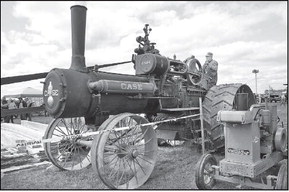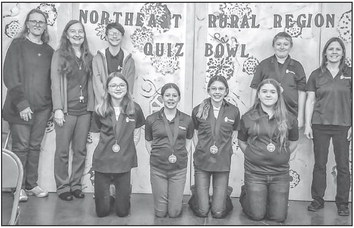Everywhere I go I find a pal


Peter Weinschenk, Editor, The Record-Review
I have an announcement. I will retire on Oct. 12, after I finish next week’s paper.
With retirement, I will conclude an adventure that started with me driving a red Gremlin full of books, clothes and a record player from Ann Arbor, Mich. to Wisconsin in late winter of 1981. I motored down a two-lane STH 29 into Abbotsford, my newly obtained masters degree in English stuffed into a cardboard box filled with kitchen pots and pans.
I pulled into Mr. B’s parking lot, looked around and wondered what I, a central California native, had got myself into.
In time, the culture shock wore off. As the new editor of the Record-Review, I learned small town ways, getting to know Main Street merchants and the local dairy industry. I learned how to dance around cow manure splatters in countless visits to local dairy barns with UW-Extension agents.
It was a different time. The local Main Streets in Athens, Edgar and Marathon still had a critical mass of small businesses, although not the numbers they enjoyed during the Thirties. The dairy industry was thriving. The countryside was thick with small farms with red barns and cows with handpicked names. Small cheese plants dotted the rural roads. Each town had its own local co-op, plenty of churches and at least one grocery store. The state didn’t tell local governments what to do. A well respected local farmer was school board president. Local business people served on village boards.
It wasn’t Garrison Keillor’s “Lake Woebegone” but it was close and endlessly interesting.
It was a different time. The newspaper was respected. A country editor (like myself) was respected. I can remember a glorious June is Dairy Month dinner held in the basement of Trinity Lutheran Church, Athens, full of burly dairy farmers. Town of Frankfort dairy farmer and legendary cheese promoter Loddie Loskot made a point of thanking me for coming. “You always have to recognize the media,” he told the banquet. That would never happen these days.
I don’t know if the idyllic village life I encountered was real or not. To some degree, it was created by an overly elaborate USDA dairy program that shielded farmers, to some degree, against roller-coaster prices. While the dairy guys survived, so did Main Street shops and churches. In time, however, it all fell apart. Dairy farmers themselves soured on the federal program and largely preferred a free market. At the same time, the Federal Reserve kicked farm loan interest to over 20 percent. The Great Farm Crisis ensued. Main Street lost many businesses.
Things, eventually, returned to normal, but it wasn’t the same. Northcentral Wisconsin joined not just the larger American economy, but the world economy. Yes, you could buy anything from Amazon, but the small town Paradise was lost. That loss reverberates through rural America today.
The constant during all of this change was that I was always writing a story about some village’s wastewater treatment plant. My office nickname for a time was “the Sultan of Sludge.”
After four decades, I can now use what time I have left for reflection, to process it all. My nervous system has dealt with murder, fires, incest, animal cruelty, suicide, car crashes, drug overdoses, bank robbery and racism, while it has also had a front seat to births, marriages, sports victories, personal triumphs, artistic excellence, business development and human redemption. It was a lot.
I am signed up for Medicare and Social Security. I am ready for every day to be Saturday.


